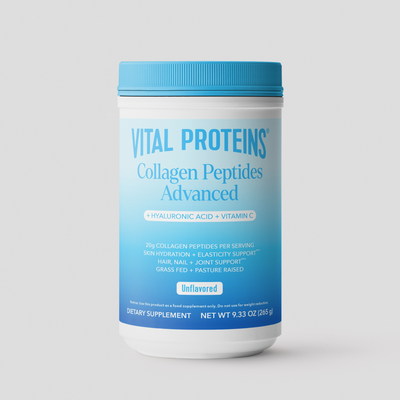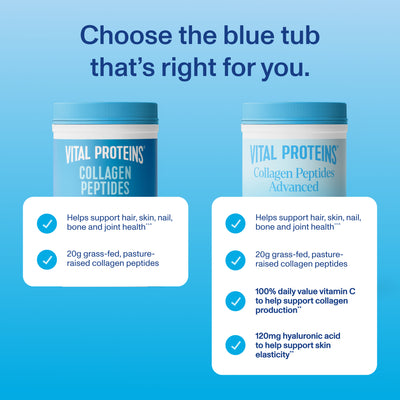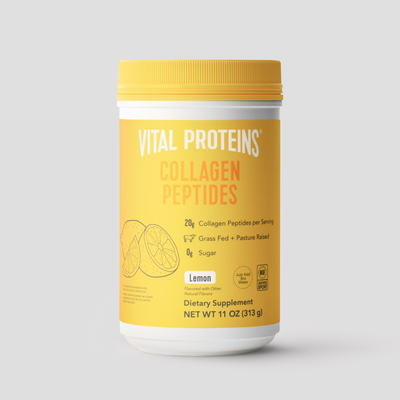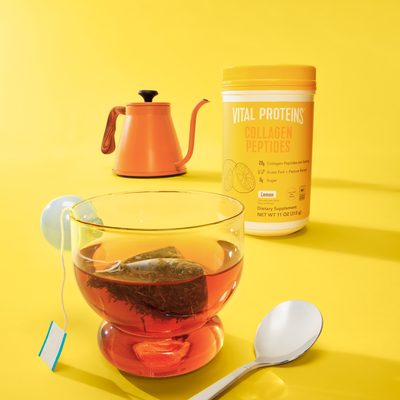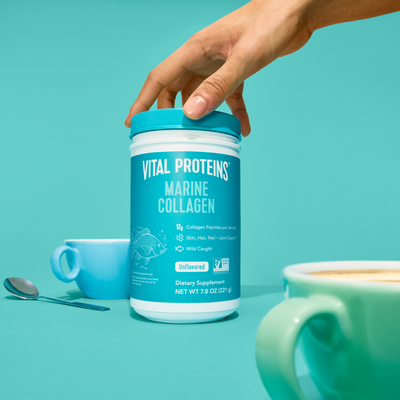Ah, sunlight. It helps us produce vitamin D, which is important for bone health, and is thought to increase the brain’s release of serotonin (cue that mood boost). That being said, too much sun exposure and sunburn can result in skin damage, such as wrinkles, age spots and even increase your risk of skin cancer.
The best way you can protect yourself from these damaging effects is to limit your exposure, cover up and slather on that SPF. And when it comes to SPF in particular, there are two major types—physical and chemical. But what’s the difference? We connected with a few dermatologists to help us break down these two types of SPF, including how they’re similar and different, as well as which may be best for you, so keep scrolling to learn more. And don’t forget to lather up!

Do I really need SPF?
Yes, yes and yes. You’ve heard it before, but we’ll say it again: No matter what your skin type is, you need sunscreen to protect your skin from the sun’s harmful rays. As Rachel Nazarian, MD, board-certified dermatologist at Schweiger Dermatology Group in New York City highlights,skin cancer is one of the more common forms of cancer (in fact, the American Academy of Dermatology estimates that one in five Americans will develop skin cancer in their lifetime), and melanoma (a form of skin cancer) can be one of the deadliest.
Sunscreen isn’t just for summertime either—you should make it a daily habit to incorporate SPF into your routine every day, regardless of what’s going on outside your window.
So what’s the deal with chemical vs. physical sunscreens?
As we mentioned above, there are two major types of sunscreen—physical and chemical. You may have heard chatter about both, but not sure exactly how they stack up against each other. The biggest difference between physical (aka “mineral” or “natural” sunscreens) and chemical sunscreens is the mechanism in which they protect against ultraviolet radiation. “Mineral sunscreens create a protective barrier which blocks UV light from reaching our skin, while chemical sunscreens typically absorb the UV light and convert it into a less harmful state,” Nazariansays.
Chemical sunscreens use up to a dozen ingredients, whereas physical sunscreens have two primary ingredients: zinc oxide and titanium oxide. Chemical sunscreens aren’t as thick as physical ones, which means they are often found in sunscreens specifically made for the face as well as those found in spray sunscreen. When applying SPF before you head out to the beach, keep in mind, chemical sunscreens need to be absorbed into the skin, they must be applied at least 20 to 30 minutes before heading outdoors, according to Penn Medicine.
Lively Note: physical sunscreens tend to be thicker and may leave a white cast on the skin.
Related Articles
Is one considered “better” than the other?
Now that we know how each works, is one technically “better” than the other? Neither is necessarily better than the other, they’re just different, says Nazarian. Adarsh Vijay Mudgil, MD, medical director ofMudgil Dermatology, adds that there are certainly differing opinions on the topic and that he personally prefers sunscreens with a mineral component (titanium or zinc). “These sunscreens provide protection against skin cancer and from photoaging (sunspots, wrinkles, etc.),” he says.

Are there times when a physical sunscreen might be a better choice than chemical and vice versa?
So, how do you know which to slather on? Dr. Nazarian points out that if you have sensitive skin, “such as babies, children, those with rosacea or those with allergies to the ingredients in chemical sunscreens, physical SPF might be the better option,” adding that the physical/mineral sunscreens are also the ones that are typically tinted, so they may be a good choice for people wanting to block visible light (which requires a tinted sunscreen), or if you’re looking to get a bit of color correction and coverage in your product.
On the other hand, Nazarian tells Lively that chemical sunscreens are often very lightweight and apply evenly on the skin without trapping as much heat underneath.
“Chemical sunscreens are great for people who are acne-prone, or are looking for a sunscreen to apply easily to a large surface area—this kind of SPF doesn’t feel weighed-down or heavy like many physical sunscreens,” Nazarian adds.
One other tidbit to note is that there are many combination sunscreens, which contain both mineral and chemical sunscreen ingredients. “I have no problem with these, as long as one isn't sensitive to any of the chemical ingredients,” says Mudgil.
Products the Experts Recommend
If you’re on the hunt for a new SPF, we’ll leave you with a few recommendations from our experts. “Some of my favorite sunscreens include Mele Dew The Most Broad Spectrum SPF 30, which is a chemical sunscreen that blends beautifully into even darker skin tones, and Revision TruPhysical, a tinted physical sunscreen that has antioxidants and an SPF 45,” says Nazarian.
Mudgil suggests looking for products made by ELTA, Neutrogena, CeraVe or LaRoche Posay. “The key is finding one that has at least an SPF of 30 and contains either titanium or zinc as one of the active ingredients. There may also be a bit of trial and error involved to find the right product for you.”














